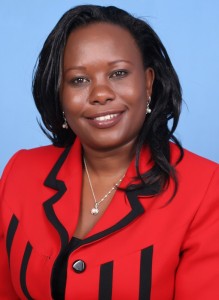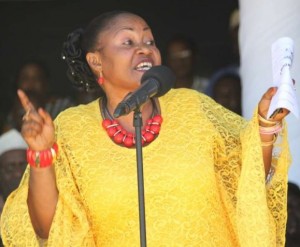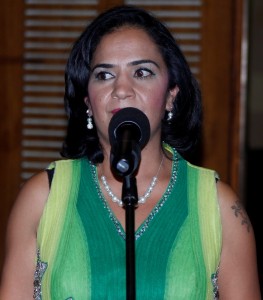By Daisy Nandeche Okoti
Published March 21, 2016
 Though Kenya’s constitution seeks to ensure gender parity in public service through the so-called ‘two-third gender rule’, many women who have come to office through this ‘affirmative action’ have so far left a lot to be desired.
Though Kenya’s constitution seeks to ensure gender parity in public service through the so-called ‘two-third gender rule’, many women who have come to office through this ‘affirmative action’ have so far left a lot to be desired.
RELATED:World to Celebrate Exceptional Women Scientists
In its constitution that came into force in 2010, Kenya sought to increase the number of women participating in national elective politics; it reserved a seat in the National Assembly for a woman in each of its 47 administrative Counties, 18 nomination slots for women in the upper house of Parliament known as the Senate and allocated five nomination slots for women in Parliament. The country, whose drafting of the constitution was driven largely by the civil society rather than the political class, also set aside an Affirmative Action Social Development Fund to enable the women implement ‘female gender empowerment’ projects in their respective counties. Powerful four-wheel-drive motor vehicles were also bought for each woman representative in the name of ‘affirmative action’.
Despite having the backing of the Constitution, the goodwill of the people and resources to help them along, the women who came to Parliament through ‘Affirmative Action’ have failed to live up to expectation.
 RELATED:Kenya’s New Security Law Undermines Human Rights
RELATED:Kenya’s New Security Law Undermines Human Rights
According to a survey conducted on the participation of these ‘Affirmative Action’ beneficiaries, both elected and nominated, in the National Assembly, only about 10 of the 70 have been vocal in putting their contributions on a national scale. The evidence of this is gleaned from the website of the Kenya Women Parliamentary Association and the National Assembly’s recordings of Parliamentary debates, the Hansard.
This lackluster performance of the ‘woman representatives’ has angered the public in a country whose government is finding it increasingly difficult to pay civil servants; they have not only withdrawn their ‘goodwill’ as they question the ‘role’, ‘function’ and ‘mandate’ of these ‘women reps’ but are also viewing them as a ‘wastage of national resources’. The taxpayers are demanding that the women show cause why their ‘special interest’ shouldn’t be scrapped. And this is music to Justin Muturi, the Speaker of the National Assembly who has called for the scrapping of ‘Women’s Reps’ positions.
RELATED:How Affirmative Action in Kenya’s Public Universities Might Buttress Stereotypes and Stigma
Few of these ‘special interest’ female parliamentarians have provided any exemplary or profound proposition that can solve the problems their constituency, girls and women, is facing currently and neither are they seen to be taking any independent or individual stands against the ills afflicting the country. Apart from acting complacent and maintaining the status quo, these ‘women reps’ are virtually absent from the floor of the National Assembly. It is difficult not to connect these ‘special interest’ representatives with weakness. Is affirmative action, in the case of Kenya’s ‘women reps’ not promoting mediocrity?
RELATED:BBC Introduces Women’s Footballer of the Year Award Ahead of the 2015 FIFA Women’s World Cup
 While positive discrimination, that’s what affirmative action is, may have a role to play in the protection of the disadvantaged–, there is a difference between the weaknesses brought about by glass-ceilings and the weakness that are brought about by lack of exertion of one’s ability or plain incompetence. Ever since the nominated and the special women representatives got into office, there is hardly any ground-breaking motion for example that has been brought to the floor of the house that could illustrate the fact that, indeed, women have potential that needed to be brought forward by the affirmative action.
While positive discrimination, that’s what affirmative action is, may have a role to play in the protection of the disadvantaged–, there is a difference between the weaknesses brought about by glass-ceilings and the weakness that are brought about by lack of exertion of one’s ability or plain incompetence. Ever since the nominated and the special women representatives got into office, there is hardly any ground-breaking motion for example that has been brought to the floor of the house that could illustrate the fact that, indeed, women have potential that needed to be brought forward by the affirmative action.
If ‘affirmative action’ has achieved anything in Kenya, it has validated the stereotype that women cannot succeed on their own except they are helped along.





